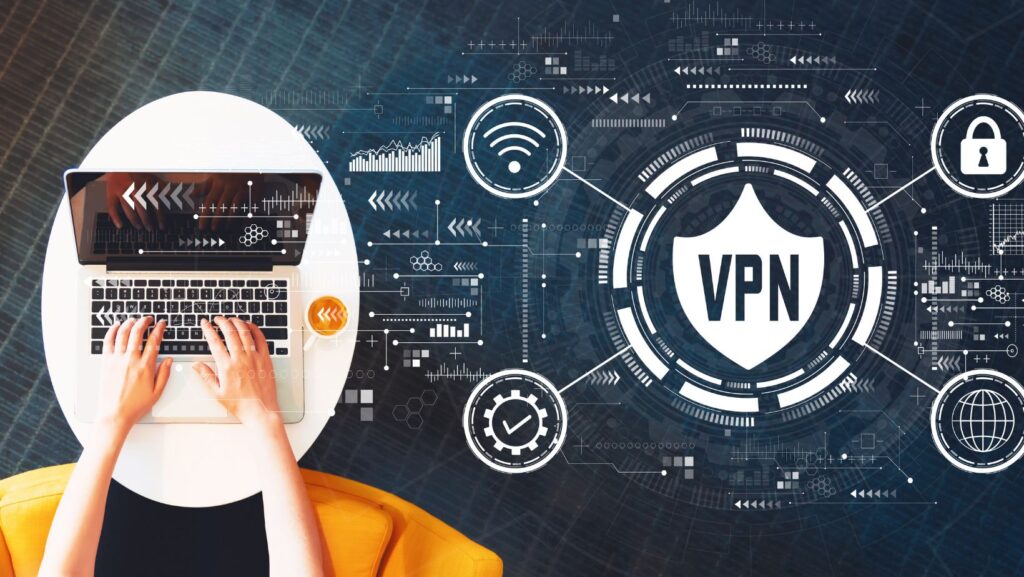
In an era characterized by pervasive digital connectivity and ubiquitous online presence, concerns about privacy and data security have become paramount. With the rise of Virtual Private Networks (VPNs), individuals are increasingly empowered to safeguard their online activities and protect their personal information from prying eyes.
In this comprehensive exploration, we delve into the significance of privacy in the digital age and the pivotal role that VPNs play in preserving anonymity and security online.
Why Online Privacy Matters: The Growing Importance of VPNs
Preserving Online Anonymity:
Privacy is essential for maintaining anonymity and protecting sensitive information from unauthorized access. In today’s interconnected world, individuals leave a digital footprint with every online interaction, from browsing websites to engaging in social media activities.
VPNs protect against invasive tracking mechanisms and data collection practices employed by advertisers, internet service providers (ISPs), and malicious actors. By encrypting internet traffic and masking IP addresses, VPNs enable users to browse the web anonymously and protect their identities from prying eyes.
Protecting Personal Data:
In an age of rampant data breaches and cyber-attacks, safeguarding personal data has never been more critical. VPNs provide an additional layer of security by encrypting data transmissions and shielding sensitive information from interception by hackers and cybercriminals. Whether accessing financial accounts, transmitting confidential documents, or communicating sensitive information, VPN users can rest assured that their data remains encrypted and protected from unauthorized access.
Evading Censorship and Surveillance:
In regions where internet censorship and surveillance are prevalent, VPNs offer a lifeline for accessing unrestricted information and exercising freedom of expression online. By bypassing geo-restrictions and circumventing government-imposed firewalls, VPN users can access blocked websites and services, communicate freely, and participate in online activism without fear of reprisal. VPNs empower individuals to reclaim control over their digital experiences and resist efforts to censor or surveil online activities.
Securing Public Wi-Fi Connections:
Public Wi-Fi networks pose significant security risks, as they are often unencrypted and vulnerable to interception by malicious actors.
VPNs mitigate these risks by encrypting data transmissions and securing connections, protecting users from eavesdropping and cyber attacks. Whether accessing Wi-Fi hotspots in cafes, airports, or hotels, VPN users can browse the internet confidently, knowing their sensitive information remains secure and private.
Safeguarding Online Transactions:
With the proliferation of e-commerce and online banking, the security of financial transactions has become paramount. VPNs play a crucial role in securing online transactions by encrypting data transmissions and preventing interception by cybercriminals.
Whether making purchases, transferring funds, or conducting business transactions, VPN users can trust that their financial information remains confidential and protected from unauthorized access.
Protecting Against Data Retention Laws:
In jurisdictions with stringent data retention laws, VPNs offer a means of preserving privacy and avoiding intrusive surveillance practices.

By routing internet traffic through remote servers in privacy-friendly jurisdictions, VPN users can evade local data retention requirements and maintain control over their personal information. VPNs empower individuals to assert their right to privacy and resist undue government intrusion into their online activities.
Fostering Digital Freedom:
At its core, the rise of VPNs is synonymous with the quest for digital freedom and autonomy. By enabling individuals to reclaim control over their online experiences and protect their privacy from external interference, VPNs uphold the fundamental principles of internet freedom and democratic values. VPN users have the power to navigate the digital landscape without fear of censorship, surveillance, or intrusion, fostering a climate of openness, transparency, and respect for individual rights.
Enhancing Remote Work Security:
In the era of remote work and virtual collaboration, VPNs have become indispensable tools for ensuring the security of remote employees and protecting corporate networks from cyber threats. By encrypting data transmissions and securing remote connections, VPNs enable employees to access company resources and confidential information securely from any location.
Additionally, VPNs help organizations maintain compliance with data protection regulations and safeguard sensitive business data from unauthorized access or interception.
As remote work proliferates, VPNs are essential safeguards for maintaining productivity and protecting corporate assets in an increasingly digital and decentralized work environment.
Conclusion:
In conclusion, the rise of the best iphone VPNs underscores the importance of privacy in an increasingly digitized world. By preserving online anonymity, protecting personal data, evading censorship and surveillance, securing public Wi-Fi connections, safeguarding online transactions, and protecting against data retention laws, VPNs empower individuals to assert their right to privacy and maintain control over their digital lives.

As guardians of online privacy and champions of digital freedom, VPNs play a pivotal role in shaping the future of the internet and safeguarding the rights and liberties of individuals worldwide.










